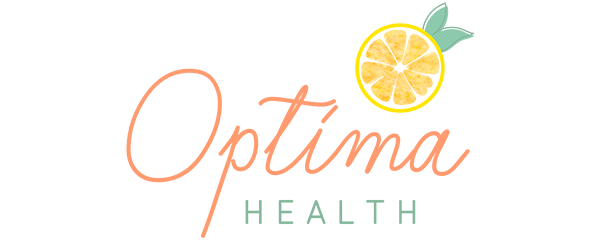It is the start of new year. Everyone is going back to work, back to school etc…things are becoming busier again. We want to avoid the toxic build up of stress, before it gets too much. Stress affects us systemically; it can be acute or chronic. It can lead to a host of physiological changes – some more serious than others – but all significant nevertheless. So read on for some tips and tricks on how best to manage it.

DIET:
Ensure a diet rich in nutrient dense foods.
Eliminate processed and refined foods, unhealthy fats and sugars. The silly season is the perfect excuse to have that extra piece of pavlova or that extra glass of champagne. While this is not a problem once in a while, overindulging on a consistent basis can lead to you feeling sluggish and fatigued and can predispose you to further stress and health conditions. Ensure you’re getting adequate leafy greens and protein. Try and eat 2 serves of fruit and 5 serves of vegetables of varying colours every day. This way you are exposing yourself to as many different nutrients as possible.
Watch the stimulants.
Avoid alcohol or enjoy in small quantities. Alcohol can exacerbate the stress response. It also disturbs our sleep patterns and can inhibit healthy food choices. If you aren’t drinking but feel like you would like to join in, try making some of your own naturally flavoured sparkling water with fresh citrus, herbs and berries. Caffeine can also increase nervous tension, which does not help either.
Gear the gut.
The ultimate secret to reducing stress is having good gut health. So much so that any imbalance in the gut will likely cause a chemical imbalance in the brain. A fun fact: serotonin (an important sleep and stress hormone) is more concentrated in the gut than the brain! Adding in fermented foods and drinks will help populate the gut with the good probiotic bacteria it needs to function optimally. But don’t forget about the prebiotics either! These act like the fertiliser for the probiotics, enhancing their growth and survival. Examples include onion, raw garlic, leek, asparagus, greenish bananas, oats, dark leafy greens.
Boost the green stuff.
Ensure 2 cups of green leafy vegetables each day – e.g. broccoli, Brussels sprouts, kale, spinach, silverbeet, beans etc.These beauties are rich in the B vitamins, which are cycled through rapidly when we are stressed to pump up our stress hormones. Spinach is of particular important as it contains folate which helps to produce dopamine – our pleasure-inducing hormone. Avocado and asparagus (amongst many more) also contain folate, making them mood-boosters too. Don’t just limit it at green foods, drink all the greens too! Green tea contains theanine a chemical that has been shown to reduce anxiety.
LIFESTYLE:
Sleep well.
Sleep is the ultimate repair agent. Try and go to bed by 10pm. Remember the old saying “every hour before midnight is worth 2 after!”. Aim for around 8-10 hours per night. When we don’t get enough sleep, our stress response is heightened. However, getting too much sleep isn’t a particular good thing either! If you are having trouble falling asleep, try taking a warm epsom salt bath. This is a grounding practice and can help ease stress and relax the body, often inducing sleep.
Move often; but not too much.
Movement provides many benefits, aside from the obvious physical wellbeing. This time of year the weather is lovely, making the addition of movement something that cannot be excused easily. If you’re feeling the stress, ease up on the high intensity workouts and focus more on walking, swimming meditation, yoga and pilates, which are more calming for your central nervous system. A simple walk, stretch or swim can help clear the mind, reduce stress and anxious response and can help induce good, restful sleep. If you can, try doing your movement outdoors for extra inspiration from our natural environment. Nature is highly restorative!
You can say ‘no’.
You actually can. Taking on too much, is a fast track trip to stress central. This year perhaps aim to take control of your commitments? Don’t overcommitment, rather prioritise on the more important commitments.
Balance your hormones.
Cortisol is our stress hormone. Chronically high levels of cortisol can result in weight gain, fluid retention, flushed skin, high blood pressure, poor blood glucose control, acne, reproductive issues, menstrual issues, fatigue and lethargy, anxiety and more! Persistently high cortisol levels cause inflammation which serves the body zero purpose and predisposes us to illness and disease. You can read more about what to eat to balance your hormones here.
Organise.
Being organised, makes the running of day-to-day much smoother. Whether you write a meal plan for the week, do all your laundry on a Sunday or plan your day on an hourly basis. Whatever works for you, implement it. Look at the week ahead, highlight all your commitments, map out potential stressors and come devise a plan to combat the stress potential before the event actually comes.
Think happy, be happy.
Think happy. Don’t overthink things. By constantly mulling on the same topic/thing to do/deadline etc. our stressors are heightened and our nervous system reacts in a negative manner. Have drive and determination. Don’t beat yourself up if things don’t go to plan, rather, take it as a learning experience, learn your lesson and move on – tomorrow is a new day.
Meditate in your own way.
Meditation for me means sitting in a comfy chair and looking out into the bush. Meditation for me means a long walk in nature. Meditation for me means grounding myself on the earths surface after a long day or week. Meditation means different things for different people. Define you own meditation and implement into your day.
Put on your comfy clothes.
I don’t know about you, but for me, there is nothing better than putting on trackies, activewear, even pjs after a long day! That itself is a stress reliever for me. It’s my signal to my body that the workday is done, its time to relax.

1Pingbacks & Trackbacks on Ask Alex: How can I reduce stress naturally?